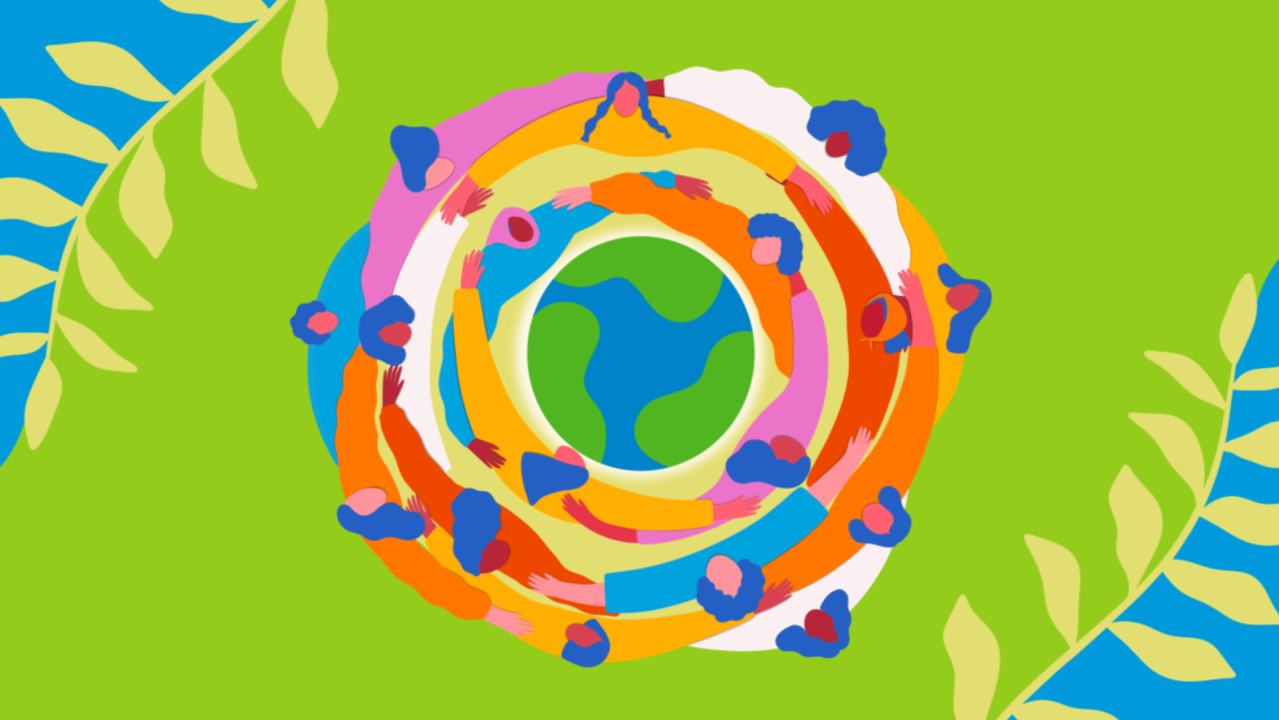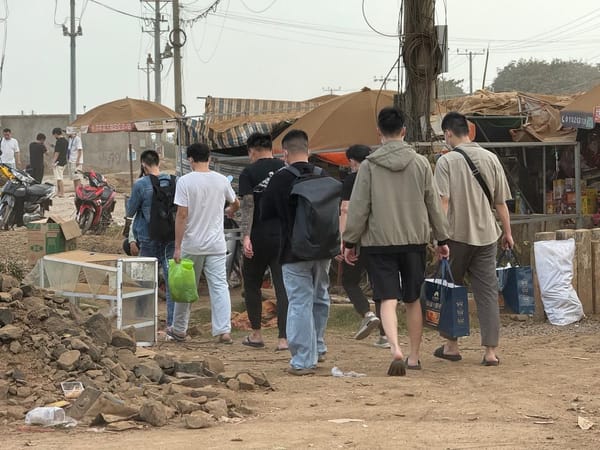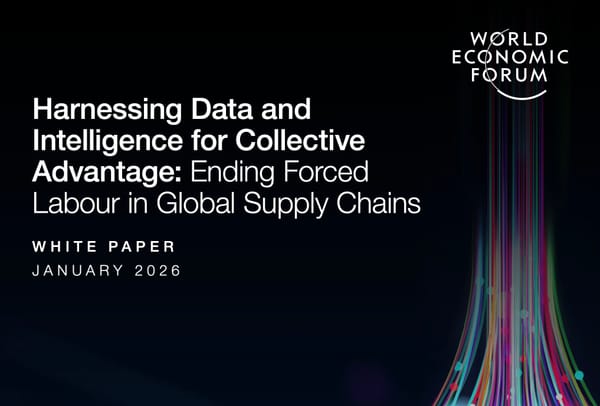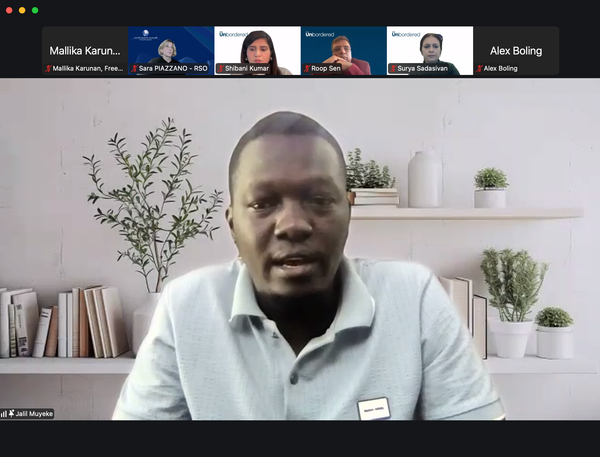Integrating climate justice and social equity programs would help protect the vulnerable

Climate adaptation and financial inclusion frameworks should be linked to protect trafficking survivors, Australia’s labour mobility visa program fails to support exploited workers, and an article explores how EU legislation could impact people in forced labour.
Social equity and climate justice frameworks must be integrated to protect survivors of trafficking and other vulnerable populations from further exploitation, according to Sanjog India, a social impact CSO that builds equity between dominant and marginalized groups, genders, socio-economic classes, and people from different ethnic identities and castes.
Climate-related disasters and disruptions are driving rural populations into deeper poverty, while a lack of access to financial services or social protection programs limits their ability to adapt. The lack of resources such as land, clean water or sustainable work forces families to make desperate decisions, with many people having to migrate to urban areas in search of work. This disruption increases their vulnerability to economic exploitation – including human trafficking – as they become more desperate for stable sources of income.
In the Indian states of West Bengal and Andhra Pradesh – where Sanjog’s livelihood and financial inclusion program, Kaarya, works directly with survivors of trafficking and commercial sexual exploitation – droughts, floods, cyclones, and rising sea levels displace thousands, leaving them without access to secure employment, social protection, or basic financial services. Traffickers exploit these precarious conditions, luring vulnerable individuals into forced labour or sexual exploitation with false promises of safety or economic stability.
Climate change exacerbates the socio-economic vulnerabilities of survivors of trafficking and impacts the financial inclusion of vulnerable populations in several ways. For survivors of trafficking, who may already lack formal identification documents, the loss of homes and livelihoods can make accessing financial services even harder, leaving them financially excluded and vulnerable to informal moneylenders who charge exorbitant interest rates. Inconsistent incomes in climate-vulnerable sectors such as agriculture, fishing, or informal labour further limit peoples’ access to financial services and impede their ability to save, increasing their vulnerability to exploitation or re-trafficking. Rural and coastal communities, already underserved by financial institutions, may see their local bank branches, ATMs, or microfinance operations shut down or face disruption during extreme weather events. And access to insurance products is limited, meaning vulnerable people are left unprotected against losses caused by floods, storms or droughts.
As part of its role as a facilitator and enabler of equity between marginalized populations, dominant social groups, legal systems and the state, Sanjog studies the ways in which systems interact, with the aim of building equitable power relations between communities and other groups. In the past year, it says, it has realized the importance of incorporating climate justice narratives not only in its financial empowerment program but across all programs and organizational strategies. Its “Climate-Just Transition” initiatives work towards building sustainable economies, while seeking to rectify inequalities, mitigate the effects of climate change, and ensure that the transition to a sustainable and climate-resilient economy is fair and inclusive, leaving no one behind.
As the exploration of climate justice, financial inclusion and other social initiatives continues, Sanjog invites communities, financiers, researchers, grassroots organizations, and climate action movements to build Climate-Just Transition strategies collaboratively. It advocates for a range of initiatives, including: inclusive banking services, digital finance, and community cooperatives to create sustainable resilience; policies that ease access to financial services for survivors, such as simplified documentation requirements or specialized financial products; social protection programs for survivors, such as healthcare, pensions, and insurance, with provisions for communities affected by climate change; investment in financial literacy and capacity building for survivors, particularly women and girls, who face higher vulnerability to climate risks and exclusion from financial tools; and survivor-led and survivor-owned production and manufacturing units to pave the way for sustainability and increase employment within communities.
Here’s a round-up of other noteworthy news and initiatives:
Free the Slaves will launch a research report examining modern slavery as a security concern on 1 October at 15:00 BST, online. The study explores the intersections between modern slavery, human trafficking, and key United Nations Security Council (UNSC) agendas, including Women, Peace, and Security; Children and Armed Conflict; and the Protection of Civilians in Armed Conflict.
This report about a social audit conducted at a Volkswagen factory in Xinjiang, China, severely undermines the credibility of claims that the audit demonstrated an absence of forced labour at the facility, as well as suggestions that social accountability standards were applied, International Labor Organization standards were followed, and that the audit was conducted by an experienced firm.
In this blog article, Anti-Slavery International discusses emerging EU legislation and explores what it could mean for workers worldwide, including agricultural workers in southern Spain who currently face human rights violations including forced labour, harsh treatment, and union busting, with little access to forms of redress.
The Pacific Australia Labour Mobility (PALM) visa system, designed to allow businesses to hire people from the Pacific Islands to fill labour shortages in the agricultural sector, has failed to provide a safety net for workers subjected to forced labour conditions, according to this report. Thousands have left the scheme and have been essentially abandoned, unable to access food, shelter or healthcare, and vulnerable to further exploitation, it says.
An investigation into the migrant reduction tactics of some European countries has indicated that the EU is funding security forces, including Tunisia’s national guard, some of whose members are committing widespread sexual violence against vulnerable women. The reporting also alleges that Tunisian officers are colluding with smugglers and routinely robbing, beating and abandoning women and children in the desert without food or water. The Tunisian authorities have rejected the allegations as “false and groundless”.
Safe Settings, a new campaign from Thomson Reuters, provides parents, caregivers, and concerned adults with critical information to help keep children safe online, including resources to help understand the risk of online child exploitation, how to take action to help protect children online, and where to access further advice and support.
Registration is now open for The Coterie’s fully virtual 2024 National Labor Trafficking Conference on 16-17 October. The schedule of talks, panels and workshops includes discussions on the trafficking of minors, labour trafficking after natural disasters, and challenges in victim identification.
Freedom Collaborative is excited to announce the addition of two new board members, Carter Quinley and Jane Khodarkovsky. Both bring a wealth of experience and expertise, and we are eager to work alongside them to further strengthen our impact and initiatives.




